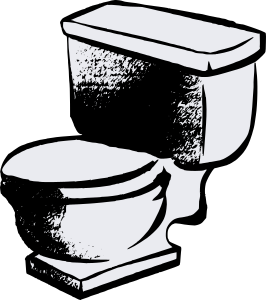EUPHEMISMS
What are they?
2. the expression so substituted: “To pass away” is a euphemism for“to die.”.
Why use them?
We use euphemisms when we need to soften what we say. Our real meaning may be too direct or harsh or too truthful. We may also want to be unclear, perhaps to confuse our listener.
For these reasons, euphemisms can be difficult for English language learners. Many euphemisms are also fixed expressions that must be learnt – the meaning cannot be guesseed.
To help you , here are some video lessons to explain and give examples of euphemisms:
In this clip, listen as Lorelai Gilmore desperately tries many ways to say “when you die” in a very indirect way to the old(er) woman who owns the café
.
PRACTICE TIME!
Next, you can practice some common euphemisms with this flashcard set. Remember, you can choose frome a variety of ways to practise, including games!
 ON THE THRONE– euphemisms for the toilet and what we do there!
ON THE THRONE– euphemisms for the toilet and what we do there!
In this advert for Charmin toilet paper, you’ll see numerous (and humorous!) euphemisms for what we do in the toilet!

Reblogged this on mlk english courses: ELT teaching Blog and commented:
an online lesson about the usage of euphemisms
LikeLike